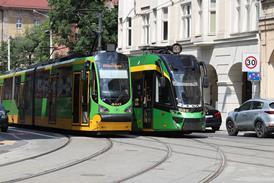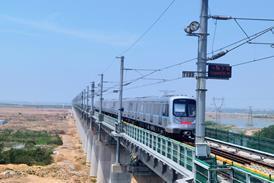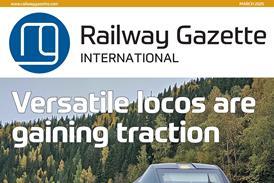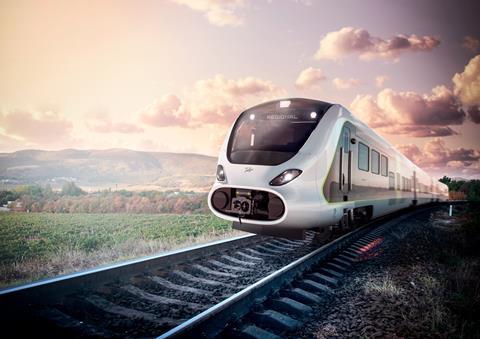
SPAIN: Rolling stock builder Talgo and petrochemical group Repsol signed an accord on July 19 to develop fuel cell trainsets powered by hydrogen generated from renewable sources.
The Spanish government’s Hydrogen Roadmap approved in October 2020 set a target of having two lines operated with hydrogen-powered trains by 2030.
Talgo had already announced its intention to develop fuel cell trains to support the decarbonisation of non-electrified secondary routes. A prototype of its Vittal One modular trainset for medium-distance and commuter applications is due to begin test running from November. The dual hydrogen-electric demonstrator is intended to validate the concept under ‘similar conditions to commercial operation’.
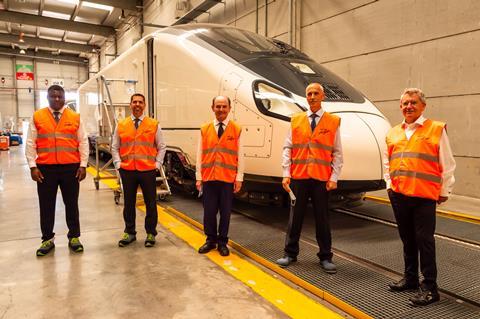
Under the alliance agreement, signed at Talgo’s Las Rozas plant near Madrid by Chairman Carlos Palacio Oriol and Repsol’s Executive Director of Industrial Transformation & Circular Economy Juan Abascal, the two companies will promote ‘emissions-free rail transport’ across the Iberian Peninsula. Talgo will be responsible for the design, manufacture, and commissioning of the trains, while Repsol will provide the infrastructure to generate and distribute the hydrogen.
Hydrogen ecosystem
Repsol is the leading consumer of hydrogen in the Iberian region, and also operates the largest hydrogen plant in Europe. It says it is already evolving its business to a ‘multi-energy’ platform, and its strategic plan published in November 2020 sets a target of achieving net-zero emissions by 2050. The group expects to play a leading role in the supply of renewable hydrogen; it aims to have an installed capacity of 400 MW by 2025, rising to more than 1·2 GW by 2030.
Repsol plans to use organic waste to generate biogas, which will then be used to produce hydrogen. It has already announced the installation of two 100 MW electrolysers to supply its Cartagena refinery and the Petronor refinery in Muskiz. The company is also looking to ‘foster and promote large ecosystems across the hydrogen value chain’, pursuing technical development through public-private collaboration.
In February Repsol and Petronor launched the Basque Hydrogen Corridor, which brings together 128 companies including Talgo. Other initiatives include the Hydrogen Valley Catalonia, co-ordinated by the Universitat Rovira i Virgili, Repsol, and Enagás, which is intended to develop an integrated ecosystem around a renewable hydrogen hub in the Escombreras Valley.
The Castilla-La Mancha hydrogen cluster around Puertollano will include a renewable hydrogen production plant using the photoelectrocatalysis technology that Repsol is currently developing with Enagás.



